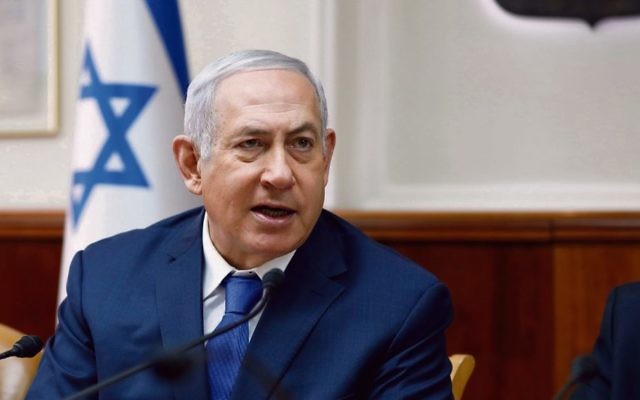Israel unenthused by West Jerusalem recognition
Israel has reacted to Australia's big announcement with a cold shoulder. Benjamin Netanyahu was silent on Australia's decision at his weekly cabinet meeting last week.
ISRAEL has reacted to Australia’s big announcement with a cold shoulder.
Normally, Benjamin Netanyahu trumpets even small advances in foreign relations at the start of his weekly cabinet meeting, but this week he stayed silent on Australia.
When questioned about Scott Morrison’s announcement, he had “nothing to add” to the Foreign Ministry’s statement – a short and unenthusiastic missive that said Australia has taken a “step in the right direction”.
Netanyahu was holding back, trying not to criticise an ally, but minister Tzachi Hanegbi was on hand to tell reporters that Australia “made a mistake”.
A close confidant of the PM, Hanegbi is often assumed to be speaking for him.
Ministers and diplomats are disappointed that only the western part of Jerusalem is recognised as the capital, and that the embassy isn’t yet being moved from Tel Aviv.
Emmanuel Nachshon, spokesman for the Foreign Ministry, told The AJN, “It’s a process that should culminate in the recognition of [all of] Jerusalem as capital and the moving of the embassy.”
Diplomats are not publicly discussing the subject in any more detail, but The AJN understands that some actually view the decision as counter-productive.
They would prefer Australia to delay recognising Jerusalem as Israel’s capital over its new stance which clashes with the Israeli position that Jerusalem is and will remain united.
Morrison declared the western part of Jerusalem to be Israel’s capital and said he wants the east of the city to be the capital of a future Palestinian state.
Ministers view Morrison’s position as an affront on Israeli sovereignty. According to Hanegbi there is simply “no such thing as West Jerusalem and East Jerusalem”.
He considers the city “whole” and Israeli control “eternal”, and insisted, “Our sovereignty will not be partitioned nor undermined.” He wants Australia to “soon find a way to fix the mistake it made”.
The Knesset’s speaker Yuli Edelstein – who represents Likud alongside Hanegbi and Netanyahu – declared himself “puzzled by Australia’s recognition of West Jerusalem as the capital of Israel”.
He insisted that “the whole of Jerusalem is our capital forever, not just a part of it.”
Opposition politicians are normally quick to take Netanyahu and his party to task, but many of them sympathised with their disappointment. “I can understand this cool reaction,” Elazar Stern of Yesh Atid told The AJN.
Though politicians on the centre and left didn’t rush to criticise Netanyahu, some were more enthusiastic about Australia’s move.
Einat Wilf, a former MK with Labour and the Independence Party, said: “Australia’s announcement that it will recognise the western part of Jerusalem as the capital of Israel and wait for the results of the negotiations on the eastern part is the correct policy.”
She called on Australia to move its embassy to western Jerusalem, but had no objection to the earmarking of eastern Jerusalem for the Palestinians.
The Palestinians were unhappy with Australia’s decision, saying it was unacceptable to recognise even western Jerusalem as Israel’s capital.
The Palestinian Authority cabinet released a statement saying that Australia has taken a “very dangerous” step.
Saeb Erekat, a Palestinian official who oversees negotiations when they take place, said, “From the beginning, we’ve perceived the Australian government’s decision to recognise Jerusalem as Israel’s capital as one wherein petty domestic politics steer irresponsible policies that contradict world peace and security.”
NATHAN JEFFAY


comments